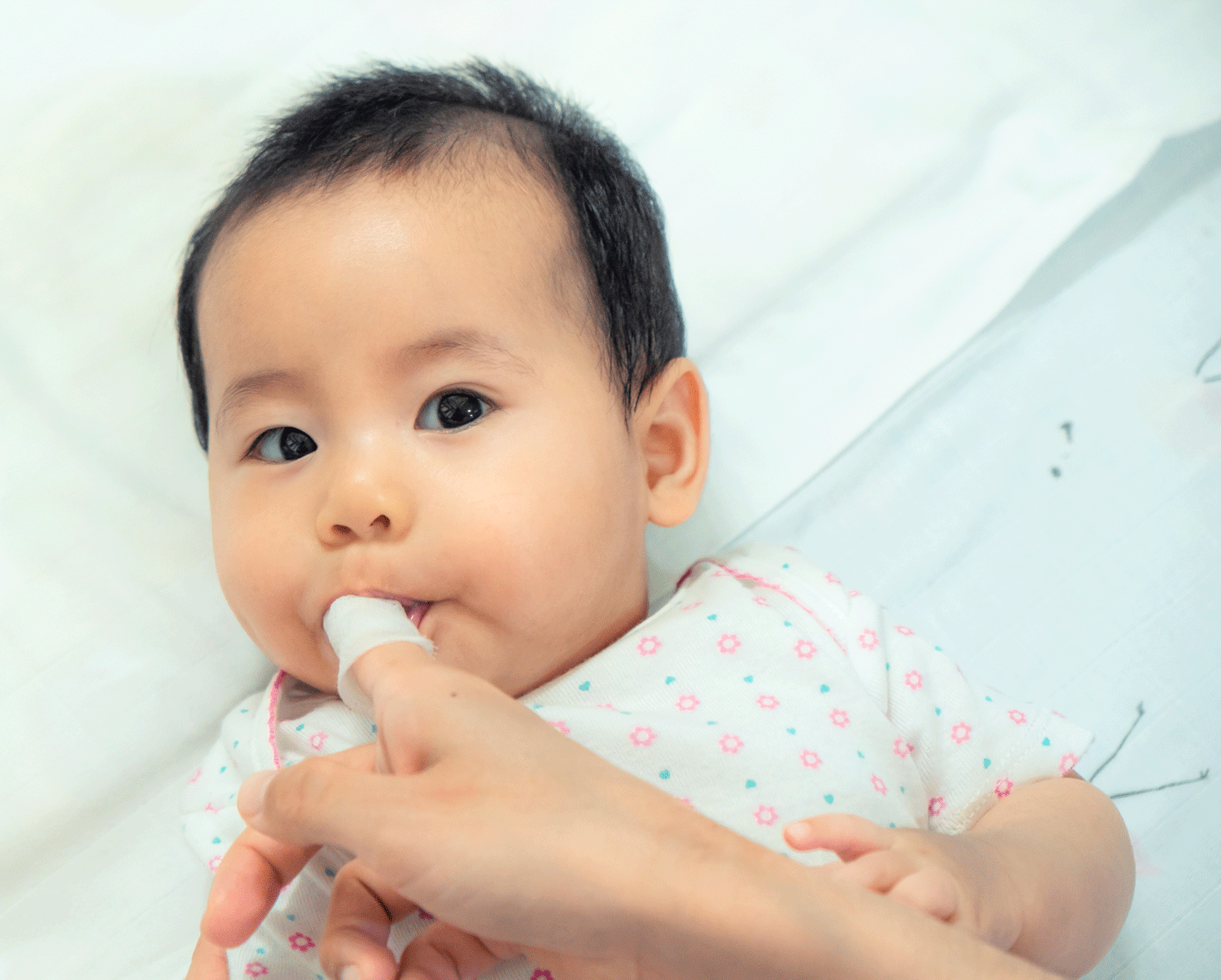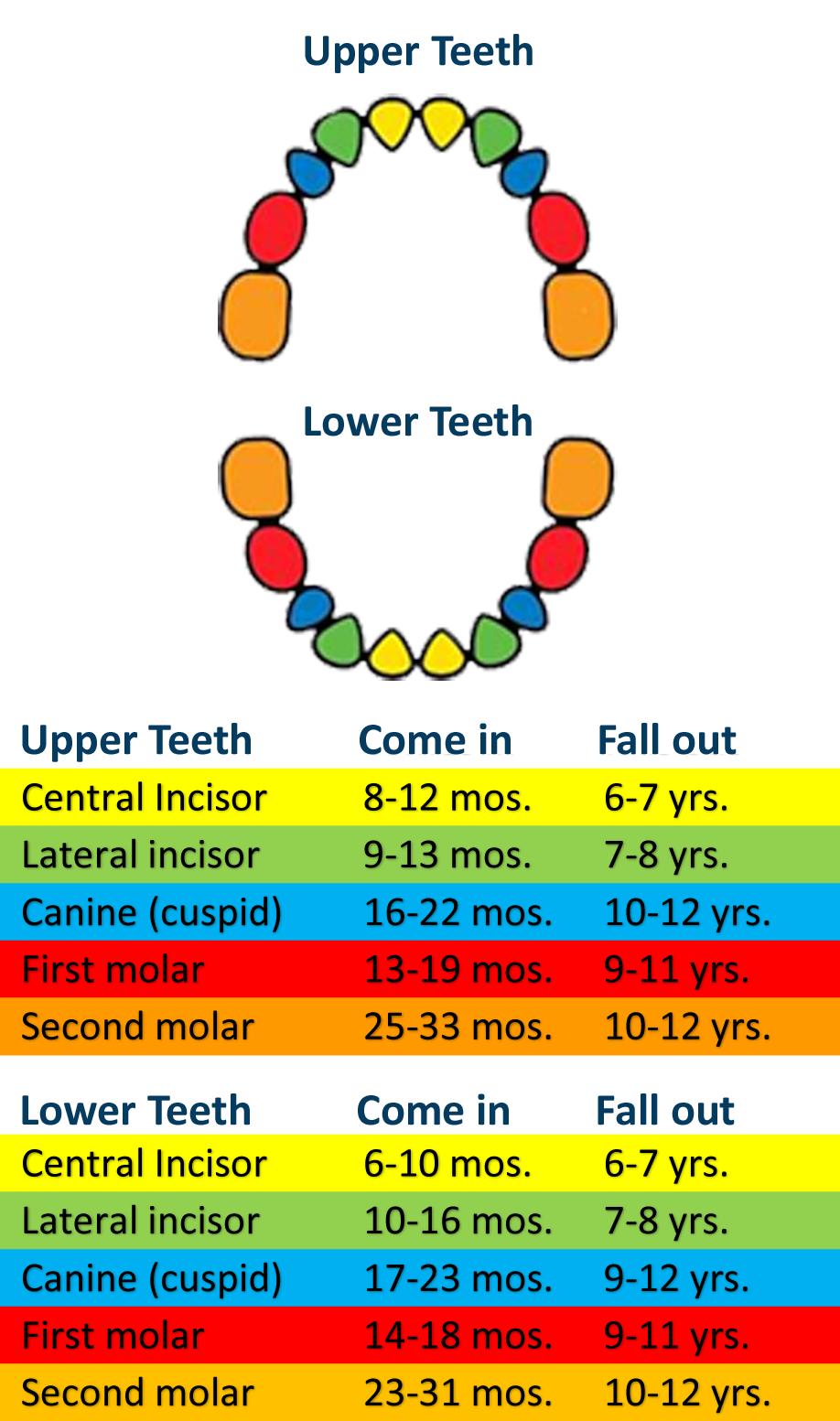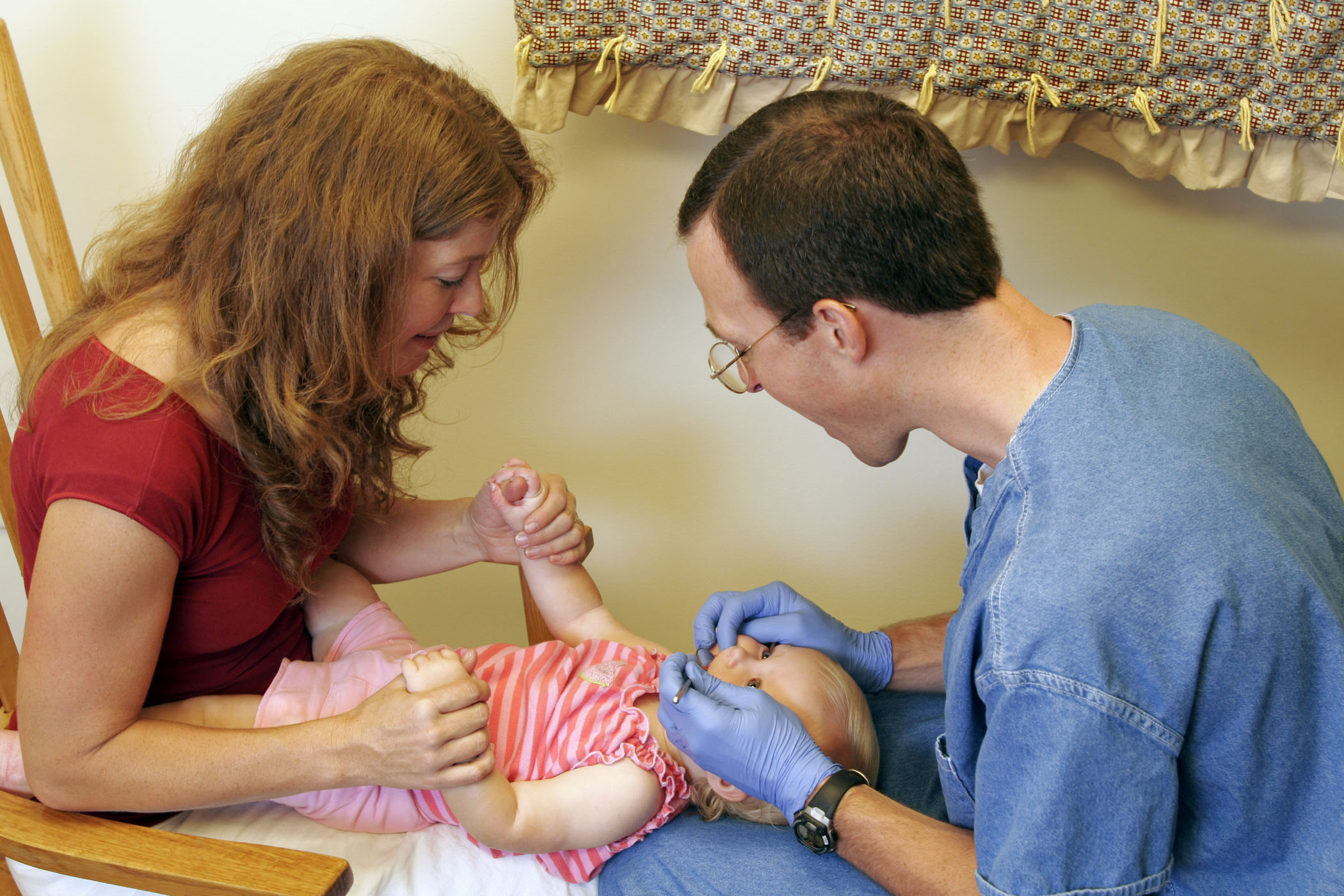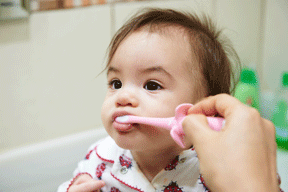Caring for your baby’s teeth
Good oral care should begin before your baby gets his or her first tooth. You can keep your baby from getting the germs that lead to cavities.

| Before your baby has teeth, wipe his or her gums with a clean, damp washcloth after feeding and before bedtime. | |
| If your baby drinks a bottle, put only milk, formula or water in the bottle. It is best not to put your baby to bed with a bottle. If you do, put only water in the bottle. Teach your baby to drink water; it is an acquired taste. If your water supply is not fluoridated, talk to your pediatrician about fluoride supplements. Be a good role model for your child, drink water instead of sugary beverages. Wait until your baby is a year old before introducing fruit juice and offer it in a cup not a bottle. | |
| Use clean pacifiers. Don’t clean a pacifer with your own mouth. The cavity causing bacteria in your mouth will be transmitted to your baby’s mouth. | |
Begin brushing your baby’s teeth twice a day as soon as his or her first tooth appears. Use a soft-bristle, baby-sized toothbrush and be careful to use only a smear of fluoridated toothpaste (the size of a grain of rice). 
Rub the toothbrush gently back and forth on the surface of the tooth and along the gum line. |
Baby teeth are important so make sure your baby’s teeth stay healthy
 |
Your baby was born with 20 primary or “baby” teeth present in their jaw? Your baby’s primary teeth will push through the gums (erupt) at around 4 to 6 months of age. Typically, the lower central incisors are first, then the upper central incisors. The remainder of the 20 primary teeth generally erupt by age 3, but the place and order varies. Children usually begin “shedding” or “losing” their primary teeth at the age of 6 years
|
Baby teeth get cavities just like adult teeth. Cavities are painful and can lead to more serious health problems if not treated early. Baby teeth hold space in the jaw for permanent teeth. When a baby tooth is lost before the permanent tooth is ready to come in, the teeth beside it will move and shift to fill the gap. This can cause future problems. The permanent teeth may come in crooked, uneven or crowded.
Protect your baby’s tiny teeth
Schedule your baby’s first dental visit before his or her first birthday.

A dentist or hygienist will check your baby’s teeth, gums, and mouth and let you know if your baby is at risk of tooth decay. They may recommend treatment and provide tips on daily care. They may talk about teething, discuss pacifer use and finger or thumb sucking. The dentist or hygienist may clean your baby’s teeth and apply fluoride varnish to help prevent cavities.
Getting used to the dentist or hygienist poking around in their mouth is the most valuable lesson your baby will learn during these early visits. Consider making a morning appointment when your baby is well rested and more likely to be cooperative. Talk about going to the dentist in a positive way. Don’t worry that your little one may cry, won’t sit still or open his or her mouth, this is normal. The dental team understands that this is a new experience for your baby.
| You can find a pediatric dentist in your area by using the American Academy of Pediatric Dentistry Dentist Locator Service. | |
| You can find a dentist for your whole family by using the American Dental Association Dentist Locator Service. | |
| Find a dentist who takes NH Medicaid on insurekidsnow.org. |
Good oral health is a family matter
It is very important to keep your teeth healthy too. If you have cavities, your child is more likely to have cavities. Cavity causing bacteria can spread from your mouth to your baby’s mouth by blowing on their food, sharing spoons or licking your child’s pacifier. Older siblings, grandparents and other caretakers can also spread cavity causing germs.
For more information
- Parent FAQ (Frequently Asked Questions), American Association of Pediatric Dentists
- Baby Teeth, Mouth Healthy™, American Dental Association
- Baby Teeth and Teething, Parents.com, Parents®
- Give Your Baby the Best Possible Start, Healthchildren.org, American Academy of Pediatrics
Funding for this Tool Kit was provided by a grant from Northeast Delta Dental

